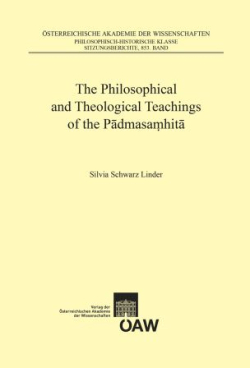
This work is the first monograph devoted entirely to the Pādmasaṃhitā (PādS), a Sanskrit text of South Indian origin composed between the 12th and 13th centuries AD and belonging to the vaiṣṇava tantric religious tradition of the Pāñcarātra. The study focuses on the philosophical and theological teachings of the PādS, as well as on the place of yoga in the religious life and ritual practice of the pāñcarātrin. In the field of theology, the PādS’s concept of the manifestation of the Supreme Being in its three forms (rūpa) – namely the Highest Vāsudeva, spirit (puruṣa) and matter (prakṛti) – is shown to be influenced by Yādavaprakāśa (Rāmānuja’s teacher) and his idea of the unfolding of brahman in its three particular concretizations (aṃśa). The relational aspect of the godhead, actualized as the presence of God in meditation and ritual worship, is also analyzed and elucidated in its theological aspects. A major topic of discussion is the doctrine of liberation and the harmonization in the PādS of an older idea of liberation (consisting of four states related to the social rank of the devotees respectively) with a later concept of liberation as a union between individual souls and the Supreme Soul. The second part of the work, which is devoted to yoga, discusses the function of the yogic disciplines in the yoga-permeated ritual system of the PādS and the importance of yogic meditation in the religious life, with particular regard to the psychological and salvific aspects of the experience of samādhi. Finally, a ritual practice of yogic suicide is discussed: the evidence provided by both Pāñcarātra and Śaiva texts testifies to the existence of a tradition that teaches yogic suicide by means of basically similar methods. In the PādS this ritual practice can be performed by the sādhaka who, by taking advantage of a specific power (siddhi), chooses to put an end to his own life in order to hasten his final emancipation.
2014,
978-3-7001-7552-0
978-3-7001-7718-0
358 Seiten,
24x15cm, broschiert